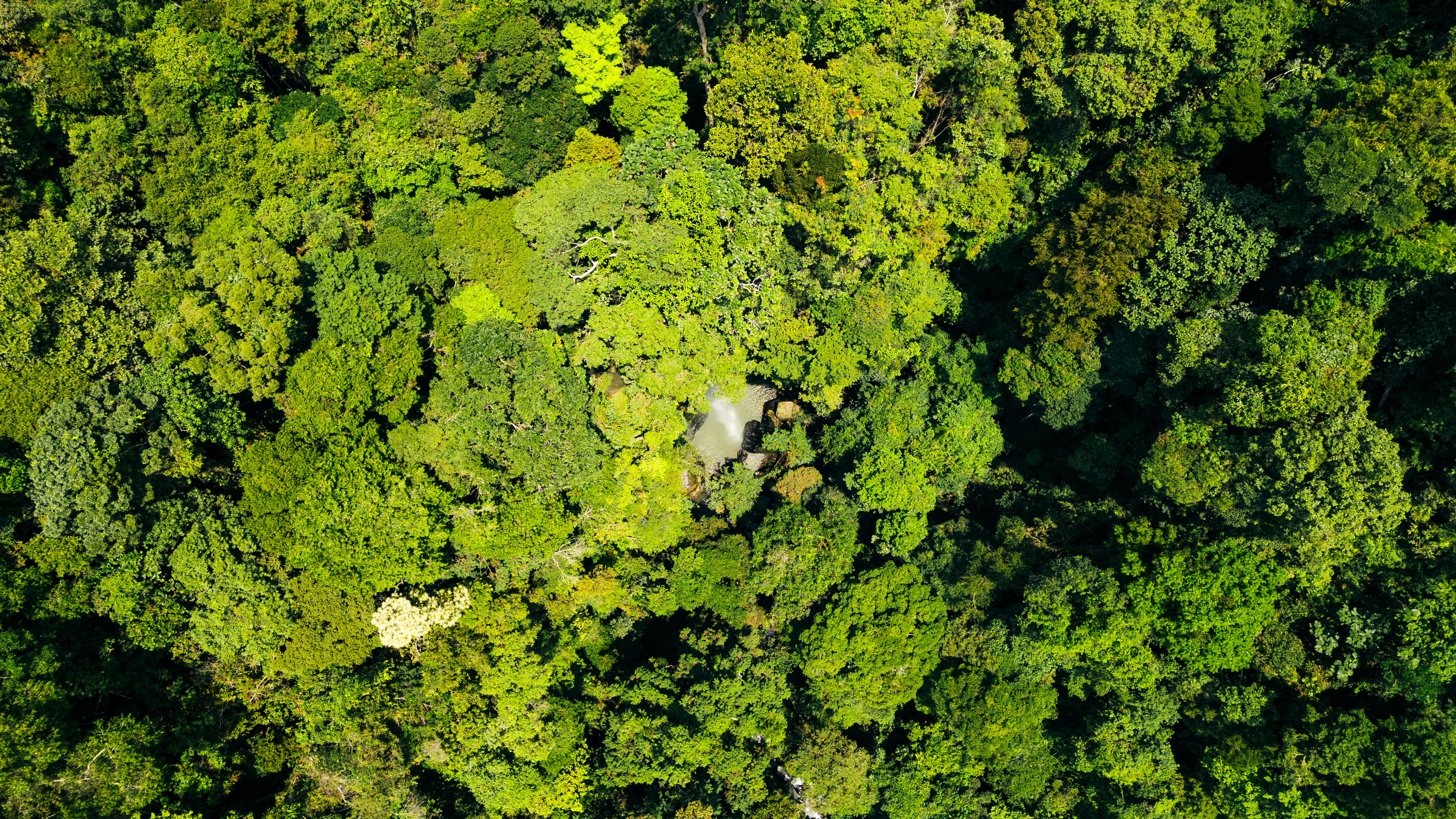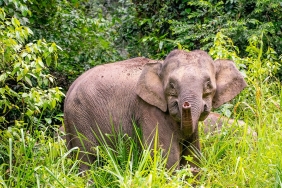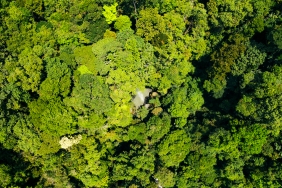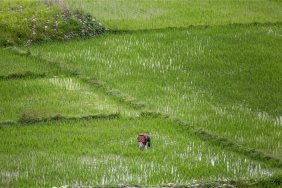WWF SUPPORTERS EXPLORE LOCAL WISDOM IN A CORNER OF YOGYAKARTA
By: Nur Anisah
Yogyakarta (22/01)-It seems that half a day is not enough time to explore the nature of Yogyakarta. The special region is full of historical and cultural values. It was the second city chosen to hold WWF-Indonesia's Supporter Gathering, after Ngariung di Alam Bandung in November last year.
This event is a way for WWF to get closer to its supporters, who have been giving their support to Indonesia's nature conservation efforts. "Jelajah Yogyakarta" was attended by around 10 participants who gathered at 7am at the Vredeburg Fortress, which is located close to the Malioboro shopping center, on Saturday, January 22, 2011. The agenda of the day's activities was to meet the supporters at the Vredeburg Fort, which is located near the Malioboro shopping center.
The agenda for the day was to cycle around several places while sharing knowledge about environmental conservation. We departed to the location by bus to Sentolo, Yogyakarta. After traveling for about 30 minutes from the city center, we finally arrived at a quiet village far from the crowded city in the Kulon Progo district.
In Sentolo, supporters were greeted by Muntowil, the owner of the bikes and our guide for the day's activities. Muntowil, as he is commonly called, has more than 10 onthel bicycles parked in his yard. There are various models, both for women's bicycles and men's bicycles.
The participants were very enthusiastic to ride the bikes. Some of them were busy choosing which bicycle was suitable and trying it out first around Mas Towil's residence. After 20 minutes of cycling, the group finally reached the first location, Banguncipto Elementary School in Bantar, Kulonprogo Regency. Being in a remote village does not mean not preserving nature. This elementary school has implemented green lifestyle principles. Each classroom is equipped with two large trash cans that separate organic and non-organic waste.
Israr Ardiansyah from WWF-Indonesia who came from Yogyakarta shared his story with the children at Banguncipto Elementary School. He talked about how the environment in his home village is different compared to 20 years ago and urged the younger generation to continue to preserve nature so that they can still enjoy the natural beauty of Yogyakarta and pass it on to their descendants. Before leaving the school, the supporters handed over some trees to be planted in the yard.
The journey continues to a traditional weaving place which is about 10 minutes cycling. We met a family of farmers who, in between their busy farming activities, make a living from weaving. The tools used are very simple, commonly known as Non-Machine Weaving Tools (ATBM). One of the participants, Irene, tried to use the loom guided by the owner's mother. "At first it was a bit difficult, but over time I was able to adjust between the foot and hand movements when weaving," said Irene Greece who has been a WWF supporter for more than 2 years.
After being impressed by the weaving craft, the supporters then continued their journey to visit a place where tempeh and organic bags made from water hyacinth are made. In a simple house, the group was welcomed by a friendly grandmother who was busy wrapping tempeh. The tempeh, which was rectangular and rather thin, was wrapped tightly in banana leaves. The size of the tempeh is smaller than most tempeh sold in the city.
Supporters eagerly bought several packs of tempeh to take home, even though the tempeh could only be consumed the next day. "If it's not cooked like this, it's good to make mendoan," said Wiwik, one of the supporters while showing a small crackle of tempeh.
Unfortunately, we could not see the process of making water hyacinth bags directly because the grandmother was making tempeh that day. However, there were piles of half-finished bags in her residence. The results of the craft will later be sold to agents across the street. The price of each bag varies from Rp 50,000 - Rp 80,000 depending on the model and size of the bag.
After exploring these three far-flung places, the morning's exploration had to end at 11am at Mas Towil's residence. Pecel with a side dish of chicken and tempeh bacem became a delicious specialty that afternoon.
Before parting ways, Israr Ardiansyah shared information about the scope of WWF. "WWF also has a workspace that also supports local wisdom such as in Kayan Mentarang where the community there produces banuaka bead handicrafts so as not to destroy nature," he said. His hope is that the supporter friends will support WWF in the future.
Hopefully, WWF supporters can help spread information to the public that WWF-Indonesia does not only work for wildlife conservation but nature conservation as a whole, including local communities living around conservation areas.




